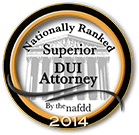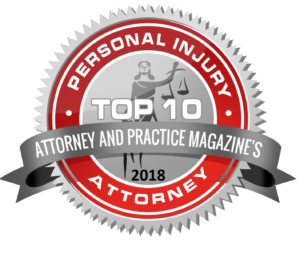In Virginia, bus accidents are unfortunately not uncommon. When they occur, they can result in severe injuries, significant property damage, and even loss of life. The aftermath of such accidents can be overwhelming for victims and their families, especially when it comes to understanding their legal rights and options. One of the key factors in pursuing a successful bus accident claim in Virginia is the concept of negligence. Understanding how negligence plays a role in these claims is crucial for anyone involved in such an incident.

Understanding Negligence in Bus Accident Cases
Negligence is a legal concept that serves as the foundation for most personal injury claims, including those arising from bus accidents. In the simplest terms, negligence refers to a failure to exercise reasonable care, resulting in harm to another person. In the context of bus accidents, negligence can occur in various ways and may involve different parties, including the bus driver, the bus company, other drivers on the road, or even entities responsible for road maintenance.
To establish negligence in a bus accident claim, it is necessary to prove four essential elements: duty of care, breach of duty, causation, and damages. Each of these elements must be carefully examined and demonstrated to build a strong case.
Duty of Care
The first element of negligence is the duty of care. In Virginia, as in other states, individuals and entities have a legal obligation to act in a manner that does not cause harm to others. This duty of care applies to bus drivers, bus companies, and other road users. Bus drivers are expected to operate their vehicles safely, obey traffic laws, and take reasonable precautions to avoid accidents. Bus companies, on the other hand, have a duty to ensure that their buses are properly maintained, that drivers are adequately trained and that safety protocols are followed.
Other drivers on the road also have a duty of care to operate their vehicles responsibly and to share the road safely with buses. Additionally, government entities responsible for road maintenance must ensure that the roads are in good condition and free from hazards that could lead to accidents.
Breach of Duty
Once the duty of care has been established, the next step is to demonstrate that this duty was breached. A breach of duty occurs when an individual or entity fails to meet the standard of care expected of them. In the case of bus accidents, a breach of duty could take many forms. For example, if a bus driver was speeding, distracted, or driving under the influence of alcohol or drugs at the time of the accident, this would constitute a breach of duty. Similarly, if a bus company failed to perform regular maintenance on its vehicles or neglected to address known safety issues, this could also be considered a breach.
Other drivers who cause accidents by engaging in reckless behavior, such as tailgating, running red lights, or failing to yield to a bus, may also be found to have breached their duty of care. Furthermore, if a government entity fails to maintain the roads properly, leading to hazardous conditions that contribute to a bus accident, this could be seen as a breach of duty as well.
Causation
Proving causation is the third element in establishing negligence. In a bus accident claim, it is not enough to show that a duty of care was breached; it must also be proven that this breach directly caused the accident and the resulting injuries or damages. This can sometimes be a complex task, especially in cases where multiple factors contributed to the accident.
For instance, if a bus driver was speeding and collided with another vehicle, causing the bus to overturn, it would need to be demonstrated that the driver’s excessive speed was the direct cause of the accident. If the accident occurred due to a combination of factors, such as poor road conditions and the bus driver’s negligence, it may be necessary to determine the degree to which each factor contributed to the accident.
In some cases, testimony or accident reconstruction specialists may be required to establish causation. These professionals can analyze the evidence, such as skid marks, vehicle damage, and witness statements, to determine how the accident occurred and who was at fault.
Damages
The final element in a negligence claim is damages. To pursue a bus accident claim in Virginia, it is necessary to demonstrate that the accident resulted in actual harm or losses. These damages can take various forms, including medical expenses, lost wages, property damage, pain and suffering, and emotional distress.
Medical expenses may include the cost of emergency care, hospital stays, surgeries, rehabilitation, and ongoing treatment for injuries sustained in the accident. Lost wages refer to the income that a victim is unable to earn due to their injuries, both in the immediate aftermath of the accident and in the long term if they are unable to return to work.
Property damage typically involves the cost of repairing or replacing vehicles or personal belongings that were damaged in the accident. Pain and suffering and emotional distress are more subjective forms of damages that compensate victims for the physical pain, mental anguish, and diminished quality of life resulting from the accident.
In some cases, victims may also be entitled to punitive damages, which are intended to punish the at-fault party for particularly egregious conduct. However, punitive damages are not awarded in every case and are typically reserved for situations where the defendant’s behavior was especially reckless or intentional.
Choosing a Personal Injury Attorney Personal Injury Case TimelineRelated Videos
Comparative Negligence in Virginia Bus Accident Claims
It is important to note that Virginia follows the doctrine of contributory negligence, which can have a significant impact on bus accident claims. Under contributory negligence, if a victim is found to be even partially at fault for the accident, they may be barred from recovering any compensation. This is a strict standard that can make it challenging for victims to obtain the compensation they deserve, especially if the defense can successfully argue that the victim’s actions contributed to the accident in any way.
For example, if a pedestrian was struck by a bus while crossing the street, the bus driver’s negligence would need to be established. However, if it is determined that the pedestrian was jaywalking or crossing against a traffic signal, the pedestrian may be found to be partially at fault. If the pedestrian is found to have contributed to the accident, even slightly, they may be unable to recover damages under Virginia’s contributory negligence law.
Because of the harsh nature of contributory negligence, it is crucial for victims of bus accidents to seek legal representation as soon as possible. An experienced attorney can help gather evidence, build a strong case, and effectively counter any attempts by the defense to assign blame to the victim.
The Importance of Seeking Legal Representation
Navigating the complexities of a bus accident claim in Virginia can be overwhelming, particularly when dealing with the legal concept of negligence and the state’s contributory negligence standard. Bus accident victims and their families often face significant physical, emotional, and financial challenges in the aftermath of an accident. Having knowledgeable legal representation can make a substantial difference in the outcome of a case.
An attorney can help bus accident victims understand their legal rights and options, guide them through the claims process, and advocate on their behalf to ensure they receive fair compensation. This may involve negotiating with insurance companies, gathering evidence, consulting with specialists, and representing the victim in court if necessary.
In many cases, bus accidents involve multiple parties, including the bus driver, bus company, other drivers, and possibly government entities responsible for road maintenance. An attorney can help identify all potentially liable parties and pursue compensation from each one as appropriate.
Furthermore, an attorney can help victims avoid common pitfalls in bus accident claims, such as accepting a lowball settlement offer from an insurance company or failing to file a claim within the statute of limitations. In Virginia, the statute of limitations for personal injury claims is generally two years from the date of the accident. Failing to file a claim within this timeframe can result in the loss of the right to seek compensation.
Bus accidents in Virginia can have devastating consequences for victims and their families. Understanding the role of negligence in these claims is essential for anyone seeking to pursue compensation for their injuries and losses. By proving the elements of duty of care, breach of duty, causation, and damages, victims can build a strong case for negligence and hold the responsible parties accountable.
However, the complexities of Virginia’s contributory negligence law make it vital for bus accident victims to seek legal representation. With the assistance of an experienced attorney, victims can navigate the legal process, protect their rights, and work toward obtaining the compensation they deserve.
If you or a loved one has been involved in a bus accident in Virginia, do not hesitate to contact NovaLegalGroup, P.C. Our team of dedicated attorneys is here to provide the guidance and support you need during this challenging time. We are committed to fighting for your rights and helping you achieve the best possible outcome in your case. Contact us today to schedule a consultation and learn more about how we can assist you.










